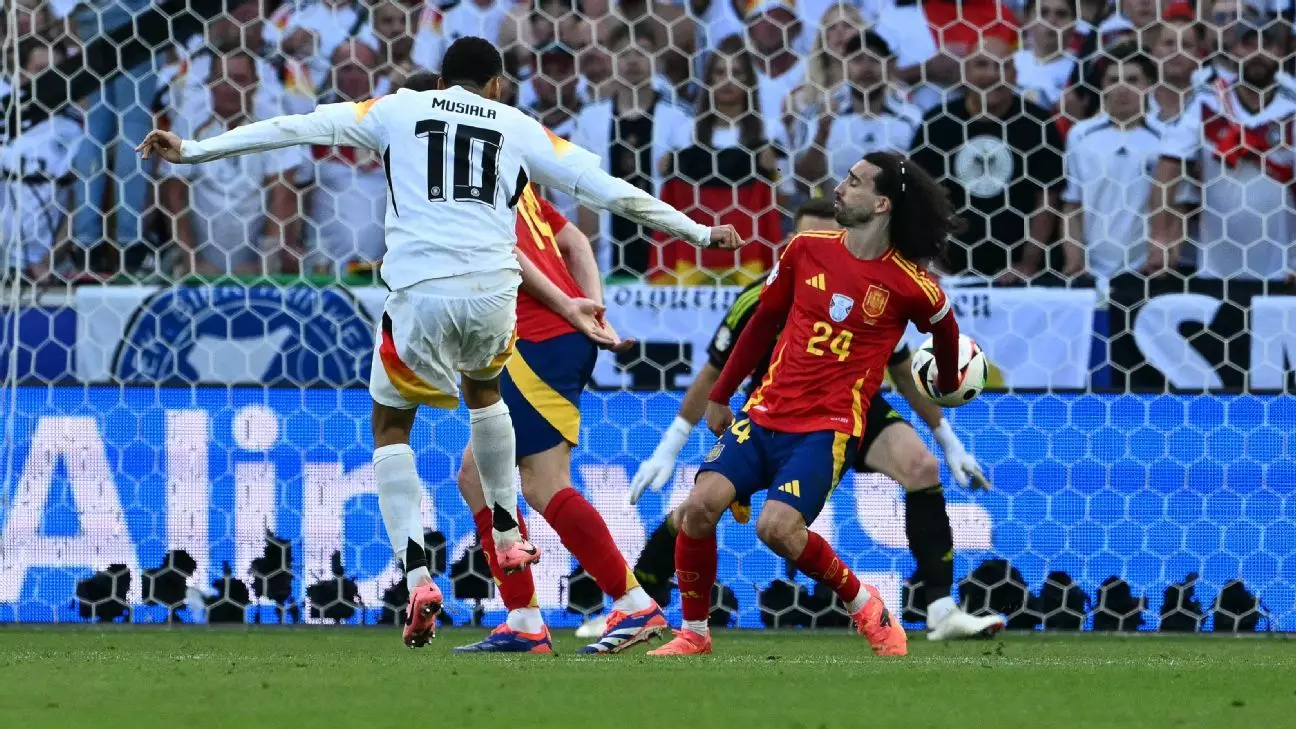Euro 2024 was a tournament filled with thrilling moments, heart-stopping matches, and significant controversies that ignited discussions among fans and analysts alike. One such incident occurred during the highly anticipated quarterfinal clash between Germany and Spain, where a crucial refereeing decision led to uproar among players and supporters of the German national team. According to a report released by UEFA’s Referees’ Committee, Germany should have been awarded a penalty for handball, a disclosure that has deepened the discourse around VAR use and referee accountability.
After the exhilarating match concluded with Spain triumphing 2-1, thanks to a late goal from Mikel Merino, the spotlight shifted swiftly to the contentious moment that transpired during the first period of extra time. With the score tied at 1-1, a shot from Germany’s Jamal Musiala struck the arm of Spanish defender Marc Cucurella. Many observers noted that while Cucurella’s arm was near his body, it was, as per UEFA’s finding, a clear case of handball that warranted a penalty kick for Germany. Ironically, the referee, Anthony Taylor, along with the VAR, Stuart Attwell, opted not to intervene. This decision was pivotal; had the penalty been awarded, the dynamics of the match could have drastically changed.
This missed call raises pressing questions about the efficacy and reliability of the Video Assistant Referee system. Designed to enhance fairness and accuracy in officiating, VAR has been a source of both validation and frustration, frequently drawing ire from fans and pundits alike. UEFA’s Referees’ Committee report highlights the inherent tension in refereeing decisions where human judgment plays a significant role, even when aided by technology. The expectation is that VAR would serve to rectify clear errors, yet cases like this amplify concerns that VAR might not always function as intended, leaving room for interpretation and debate.
Moreover, prior to the tournament’s commencement, UEFA’s chief refereeing officer Roberto Rosetti had provided explicit examples vital for determining handball situations, emphasizing that an arm positioned closely to the body should not be penalized. This directive, however, did little to assuage frustrations over the Cucurella incident and illustrates a potential disconnect between guidance and in-game application. Such discrepancies could imply inconsistencies in officiating standards, breeding mistrust among teams and fans regarding the integrity of the game.
As Euro 2024 draws to a close, the ramifications of this controversial match decision linger. For Germany, the impact is enormous, not just as a missed opportunity for progression in the tournament but also as a rallying point for discussions about governance within football officiating. Fans are left grappling with whether fairness is adequately reinforced under current systems or if revisions are necessary to better align with the sport’s evolving nature.
Ultimately, this incident exemplifies a crucial evolution point for football governance. It provokes inquiries into whether sweeping changes need to be implemented to ensure that refereeing standards meet fans’ and players’ expectations. As the footballing world looks forward to future competitions, such scrutiny may do well to reshape protocols that can restore faith in the fairness of the game.

